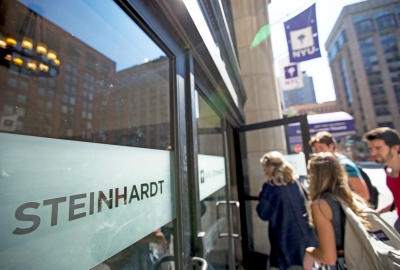Designed for art students, this lecture course spans a range of histories from across the globe and challenges how we view, understand, and approach concepts of time, globality, and history. We examine canons, works, and phenomena traditionally excluded from art history focusing on key concepts like image, space, material, text, and ritual in artistic practice. Weekly studies of diverse objects and practices explore cultural, historical, and social contexts that shape art. Draws on multiple disciplines, aiming to connect historical periods with contemporary art.
Course #
ARTCR-UE 58
Credits
2
Department
Art and Art Professions


